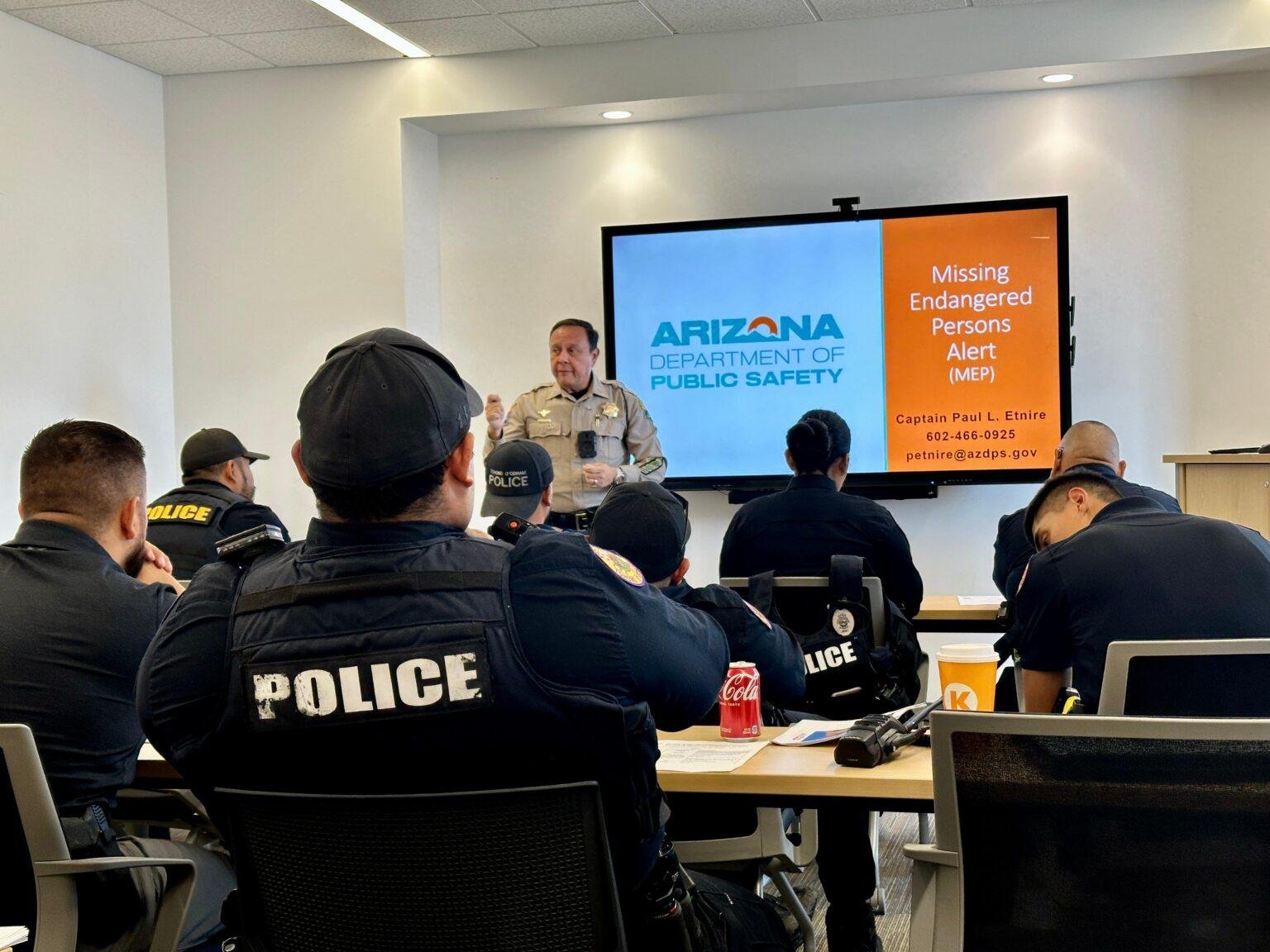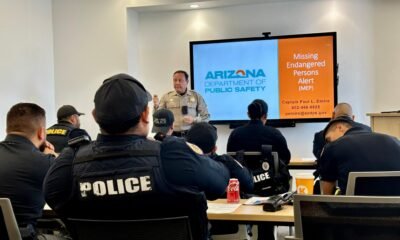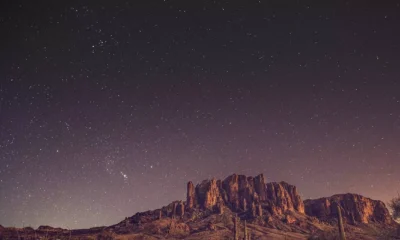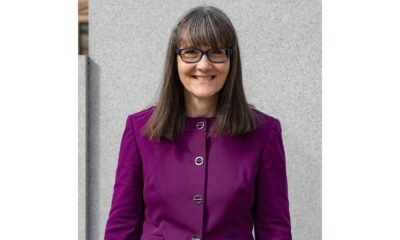arizona
Tohono O’odham PD Commits to Essential Training on Missing & Murdered Indigenous Peoples

April Ignacio, co-founder of Indivisible Tohono, recently addressed Tohono O’odham police officers about the Missing and Murdered Indigenous Women (MMIW) movement. Only three out of fifteen officers were familiar with this critical issue, highlighting a significant knowledge gap.
The MMIW movement emerged in the 1990s in Canada, driven by grassroots advocates concerned about the alarming rates of Indigenous women going missing or being murdered. Ignacio emphasized that the movement’s core is about community connection and awareness.
Ignacio, a seasoned advocate in this domain, started mandatory MMIW training for the Tohono O’odham Police Department in May 2023, aiming to have all officers trained by the end of August. She stated, “The first step is getting law enforcement to understand that this is a real issue.” The training seeks to educate officers on the ongoing crisis affecting Indigenous communities.
By offering this training, Ignacio aims to involve local law enforcement in developing effective responses to the MMIW crisis. “It’s much easier to implement changes locally than on a state or national level,” she noted.
The first training session occurred at the Tohono O’odham San Xavier Police Department on May 27 and 28, with Ignacio collaborating with Capt. Paul Etnire from the Arizona Department of Public Safety. This session provided a comprehensive overview of the MMIW movement, focusing on federal, state, and local efforts.
A poignant moment during the training involved displaying photos of missing and murdered women from the Tohono O’odham Nation, ensuring their stories are not forgotten. Ignacio reminded officers, “This isn’t all of them. This is just a handful.” She pointed out that many murdered women are victims of people they know or their intimate partners.
Ignacio attributed the success of this training initiative to the strong relationships Indivisible Tohono has built with the Tohono O’odham Police Department. Despite previous challenges in getting responses to her inquiries about MMIW, the situation improved when she engaged with Interim Chief James Cook, who actively sought changes within the department.
The training emphasized that Indigenous people are systemically affected, which particularly impacts the smaller communities. According to Ignacio, the Tohono O’odham Police Department is unique in Arizona for making MMIW training mandatory, distinguishing it from over 100 other police departments across the state.
One significant gap highlighted during the training was the lack of communication with families of missing persons. Ignacio stressed the importance of keeping families informed about their loved ones and suggested practical changes, such as creating an MMIW website for updates.
Officers shared their own concerns, addressing data deficits and the challenges faced when responding to domestic violence incidents. Many cases are intertwined with mental health and substance abuse issues, complicating law enforcement efforts.
Ignacio pointed to systemic issues within healthcare services affecting Indigenous peoples, emphasizing the need for updated resources. Concerns over the lack of a centralized database for MMIW cases were also raised, with Etnire recognizing failures across multiple systems, from law enforcement to healthcare.
Data from the Urban Indian Health Institute reveals Arizona has the third-highest number of missing and murdered Indigenous women and girls in the country. Etnire urged the importance of determining the reasons behind disappearances, invoking a sense of responsibility towards victims and their families.
Ignacio and her team at Indivisible Tohono remain committed to addressing the MMIW crisis, facilitating workshops and outreach programs to educate the community on systemic issues. The goal is to provide resources and support, instilling hope for positive change.
Ignacio expressed optimism, stating her intention to continue MMIW training throughout the summer, with aspirations for other tribes to follow suit.


















